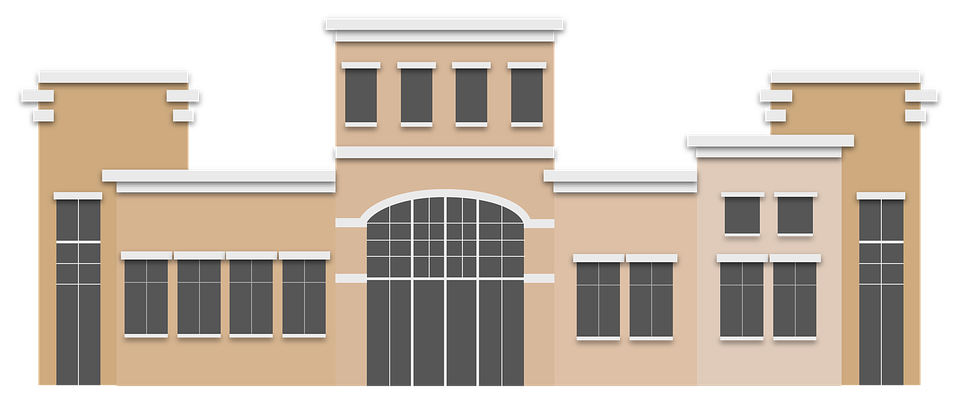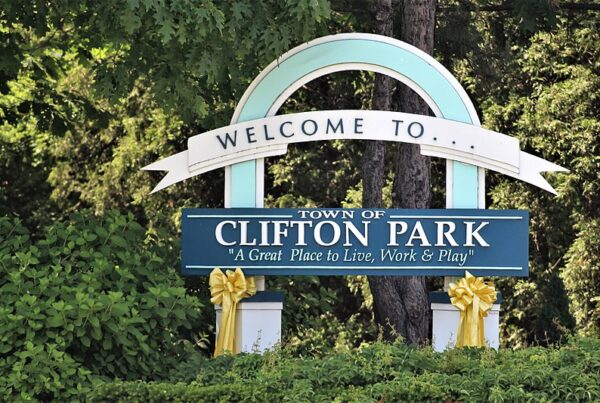
What is Commercial Real Estate
Commercial real estate in Clifton Park is property or land exclusively used to conduct business and residential properties that have five or more units. Anything under five units such as duplexes, triplexes, and quads are still considered residential real estate.
More often than not, tenants lease commercial real estate for income-producing businesses such as restaurants, nail salons, department stores, etc. Some businesses own the property they occupy, but most companies seek out Clifton Park commercial space for rent to control overhead costs.
Types of Commercial Real Estate
Clifton Park commercial real estate falls under eight different categories:
- Multifamily
- Office
- Industrial
- Retail
- Hotels/hospitality
- Mixed-Use
- Land
- Special Purpose
Multifamily
Multifamily or multi-dwelling unit (MDU) is any property meant for habitation with five units or more such as apartment buildings, condos, townhouses, etc. Individuals can either lease these units directly from an owner or landlord or sometimes can purchase a single unit of an apartment building or an individual condo or townhouse.
Office
Businesses of all sizes tend to reach a point where they need to find Clifton Park office space for rent. Office buildings are often grouped into three categories, Class A, Class B, and Class C, depending on their location, the structural integrity of the building, and the health of the real estate market in that area. Class A is the best in terms of the structure of the property itself and the location. A Class B property has a sound structure but is located in a less than ideal area.
Class C buildings tend to be distressed and in bad locations for business
Industrial
While commercial real estate encompasses properties reserved for businesses that interact with the public, industrially zoned locations are often used for manufacturing or packaging. Industrial properties fall under four different categories.
- Heavy Manufacturing: These buildings house heavy machinery used for manufacturing.
- Light Assembly: These buildings are used for storage and/or product assembly. They aren’t as customized as a heavy manufacturing building.
- Bulk Warehouse: These properties are used for storage and/or distribution
- Flex Industrial: These buildings house both industrial and office spaces.
Retail
Retail real estate is any property used for shopping and entertainment purposes. Retail spaces depend on foot traffic and can be multi-tenanted buildings such as a shopping center with different businesses or standalone buildings which tend to be occupied by chain establishments.
Hotels
A hotel commercial property is any property that provides accommodations and other services for travelers. Hotel properties fall under six different categories.
- Limited Service: These establishments do not provide room service or meals, only sleeping accommodations. An example of a limited-service hotel commercial property is a motel.
- Full-Service: Hotels that include room service, concierge services, and an onsite restaurant
- Boutique: An independently owned hotel (not a chain) that tends to be smaller but still provides full-service amenities.
- Casino: A location that provides entertainment for guests in the form of slot machines, blackjack tables, etc.
- Extended Stay: These properties are meant for individuals and families that require long-term accommodations. These properties provide fully-equipped kitchens in each room.
- Resort: These properties are typically located in tourist locations such as Hawaii or Florida. They tend to sit on large pieces of land and have extra amenities such as access to an onsite golf course, water park, etc.
Mixed-Use
Commercial properties designed as “mixed-use” in Clifton Park include both residential and commercial spaces. An example of a mixed-use building is a Clifton Park business located on the ground floor with apartment units above. In most Mixed-Use properties, the residential portion of the building takes up more square footage than the commercial portion. Tenants often refer to mixed-use spaces as live-work spaces.
Land
Commercial land in Clifton Park is any plot of land used for commercial purposes. An example of commercial land is a parking lot next to a large retail store. This parking lot is used to generate business and thus is considered commercial land.
The value of commercial land can fluctuate wildly depending on the location of the parcel and the profitability of the businesses surrounding it. Commercial land can fall under three categories
Infill Land: This land is located in a city and surrounded by developed commercial and residential properties.
Greenfield Land: This category of commercial land encompasses undeveloped land but also farms and pastures.
Brownfield Land: This type of land has been previously used for commercial or industrial purposes but is now available for other uses. Brownfield land tends to be impacted by an adverse environmental incident such as a chemical spill or explosion.
Special Purpose
Land designated as “Special Purpose” doesn’t fit neatly into any of the other categories. Examples of Special Purpose land use include amusement parks, theatres, zoos, etc.
The Commercial Leasing Process
Say you own a growing business and you are ready to find a Clifton Park office space for lease. The first step in leasing the right office space is finding a commercial real estate agent to assist you in your search. Ensure you interview several agents and pick one with lots of experience with commercial real estate.
Commercial real estate is different from residential real estate, so you want an agent who understands these differences and can help you avoid making costly mistakes. A quality commercial agent in Clifton Park can help you find a suitable space and negotiate terms with the owner.
You want to provide your commercial agent with your budget, space requirements, as well as the amenities and layout you need for your Clifton Park office space.
Once your agent understands your needs fully, they will set you up on a search so you can see the available Clifton Park office rentals available. Your commercial agent will set up tours with property managers and accompany you on these visits.
Once you find the Clifton park office space that meets your needs, you will need to present a proposal to the owner or property manager. This is where a quality commercial real estate agent becomes invaluable. An agent will help you analyze market data to create a proposal that details the rent you are willing to pay and the specific lease terms.
The owner or property manager will then accept your proposal or make a counteroffer, and your agent will help you through the negotiation process.
For example, you can sometimes negotiate for the owner to cover expenses such as maintenance and taxes for the first year before they pass back to you. This is especially important when you are only using a small portion of a large commercial space. It can be expensive if you are responsible for replacing an essential mechanical component that covers the entire property.
Once you’ve come to an agreement, you will sign a lease.
Types of Commercial Leases
Unlike residential rentals where a tenant signs a simple lease agreement, a Clifton park commercial property for rent can fall under four different lease types.
- Single Net Lease: Tenants are responsible for paying property taxes
- Double Net lease: Tenants are responsible for paying property taxes and insurance
- Triple Net Lease: Tenants are responsible for paying property taxes, insurance, and all maintenance fees
- Gross Lease: Tenants are responsible for paying only rent, and the landlord takes care of the other expenses.
Different Clifton Park businesses have different needs when it comes to their lease terms, so make sure to consult with an agent to help you negotiate the kind of lease that works best for you and your business.




